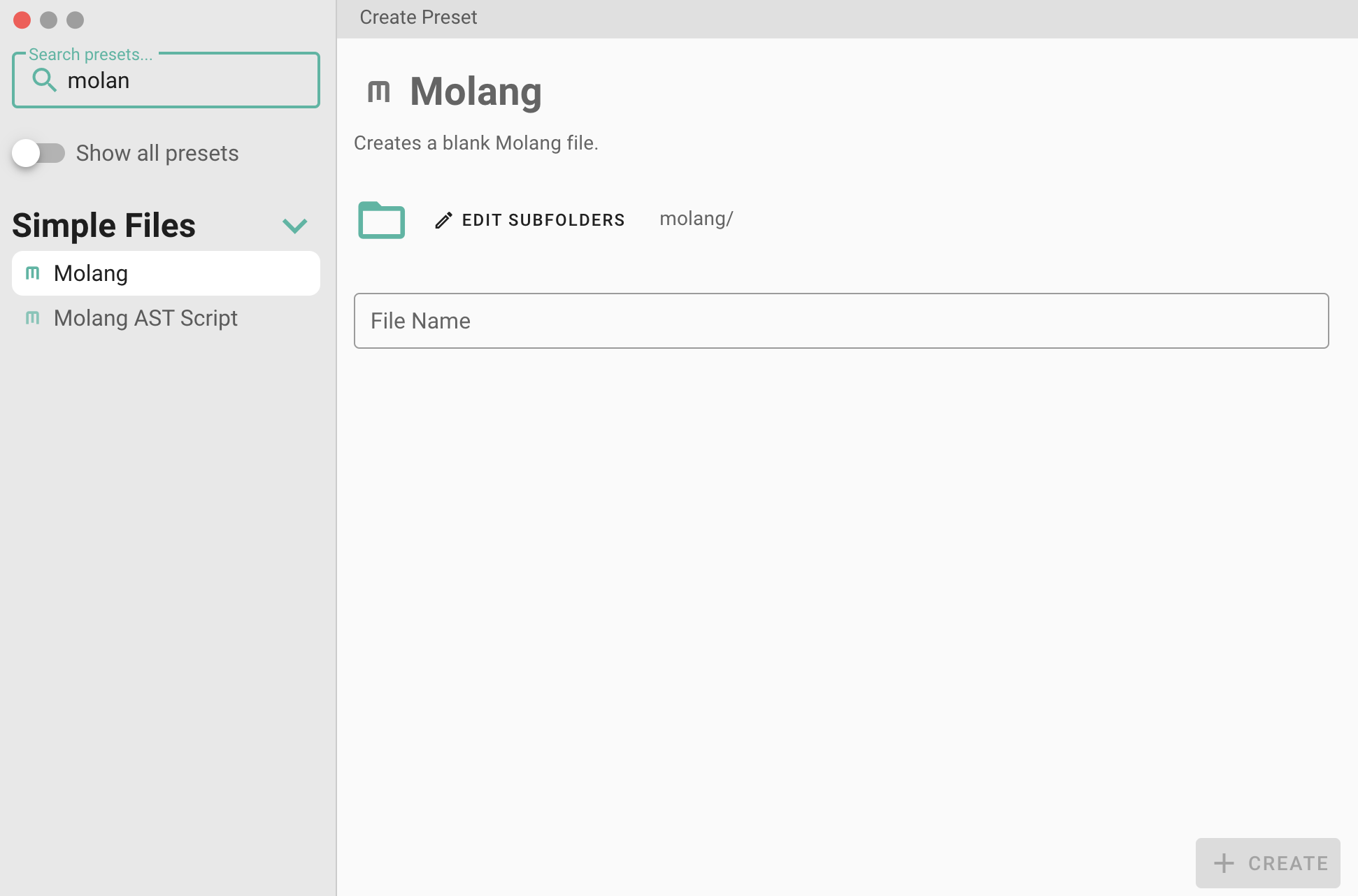∿ Molang Files
This page serves as an introduction to bridge.'s Molang files and how you can utilize them to extract common scripts into a single file.
This article teaches you the following topics:
☑️ What is a Molang file?
☑️ How to use Molang files.
☑️ How to use Molang functions.
Basics
Molang is Minecraft's scripting language. It is used within items, blocks, animations and many more of Minecraft's JSON files.
bridge. supports extracting common Molang scripts into dedicated ".molang" files: Simply create a new Molang file over bridge.'s file creation window to get started.

The "molang" compiler plugin loads Molang files from the BP/molang/ and RP/molang/ folder. The above preset creates the molang/ folder and your first ".molang" file for you.
WARNING
Make sure that the "molang" plugin is listed within your compiler config in order to use ".molang" files.
Molang Functions
Molang files can contain multiple Molang functions. Functions defined within a Molang file can be accessed anywhere within your project. To define a function, the following syntax is used:
javascript
function('sq', 'base', {
return math.pow(a.base, 2);
});
function('pow', 'base', 'exp', {
return a.exp == 0 ? 1 : a.base * f.pow(a.base, a.exp - 1);
});
- The first argument always defines the function name
- All following arguments except the last one define input arguments
- The last argument is the function body
- Within the function body you can use
a.<ARG NAME>orarg.<ARG NAME>to access the input arguments - Temporary variables get scoped to the current function body automatically
- Basic recursion is supported as long as the interpreter can stop the recursive calls at compile-time
To later call functions inside of Molang scripts, simply use f.<FUNCTION NAME>(<FUNCTION ARGUMENTS>) or function.<FUNCTION NAME>(<FUNCTION ARGUMENTS>). After defining the functions in the example above, you could call f.sq(2) or f.pow(3, 2).
json
{
...,
"transitions": [
{ "default": "f.sq(v.my_var) > 4" }
]
}
Technical Implementation
Molang files are powered by our Molang libarary and the built-in "molang" compiler plugin. Our molang library is also open-source and licensed under the MIT license.